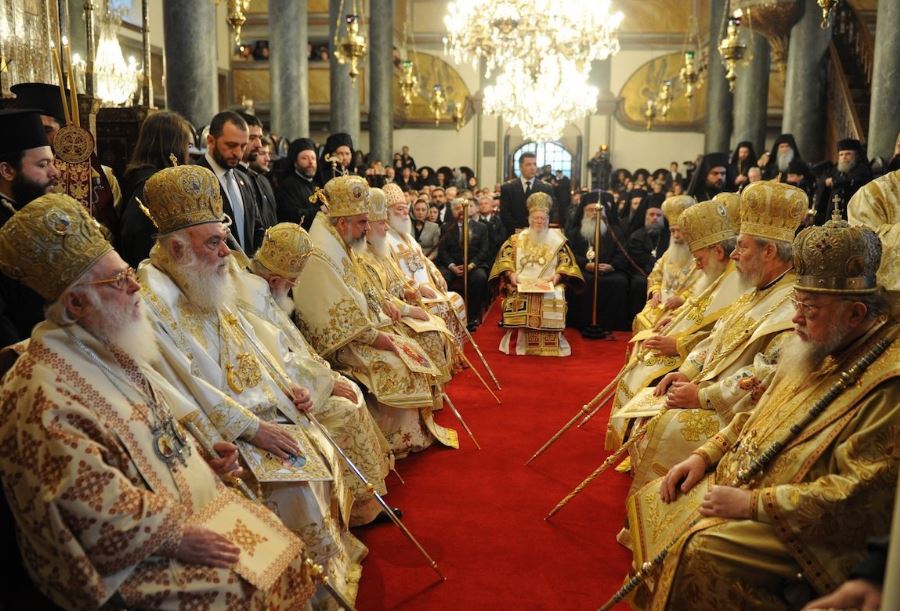
by St. Nikolai Velimirovich
St. Nikolai’s attitude toward ecumenism is shown by his participation, as an Orthodox bishop and theologian, in the ecumenical meetings and dialogues between the two World Wars, and later he was present, as the accredited visitor, at the meeting of the World Council of Churches in Evanston, Illinois, in 1954. Bishop Nikolai considered the prerequisite for the achievement of union among the Churches to be mutual love. He wrote in The Agony of the Church:
The Church of England cannot be saved without the Church of the East, nor the Church of Rome without Protestantism; nor can England be saved without Serbia, nor Europe without China, nor America without Africa, nor this generation without the generations past and those to come. We are all one life, one organism. If one part of this organism is sick, all other parts should be suffering.
Therefore let the healthy parts of the Church take care of the sick ones. Self-sufficiency means the postponement of the end of the world and the prolongation of human sufferings… It is a great thing to love one’s Church, as it is a great thing to love one’s country, but it is much better to love other Churches and other countries too.
Now, in this time, when the whole Christian world is in a convulsive struggle one part against the other, now or never the consciousness of the desire for one Church of Christ on earth should dawn in our souls, and now or never should the appreciation, right understanding and love for each part of this one Church of Christ on earth should dawn in our souls, and now or never should the appreciation, right understanding and love for each part of this one Church begin in our hearts.
This does not mean that he denies the authenticity and uniqueness of the Orthodox Church, nor does he consider her lacking or defective in any way; rather, in the context of the wartime drama encompassing his and other European nations, he sincerely wishes for the unification of all European Christian communities for their benefit and for the benefit of other Christians in the world. He clearly expresses the Orthodox stance with regard to the ideal of Church unification:
“We must return to the only source of Christian strength and majesty—to the spirit of Christ. This rebirth and the revival of Christianity are possible only in a united Church of Christ. This unity is possible only if built on the foundations of the original Church.”
The above quotation confirms that in the Saint Nikolai’s opinion, there is continuity in two things:
1) only the Orthodox Church has the plenitude of Christ, but this is not her own treasure but the treasure of Christ accessible to everyone;
2) the relationship of the Orthodox Church with other Churches must be a relationship of love, so that they can recognize the treasure that carries the Orthodox Church.
“Liberalism, conservatism, ceremonialism, right, nationalism, imperialism, law, democracy, autocracy, republicanism, socialism, scientific criticism, and similar things have filled Christian theology, Christian service, Christian pulpits as the Christian Gospel. In reality the Christian Gospel is as different from all these worldly ideas and temporal forms as heaven is different from earth.”
St. Nikolai Velimirovich, Agony of the Church, at the online version of the book: http://www.gutenberg.org/cache/epub/20206/pg20206.html.
